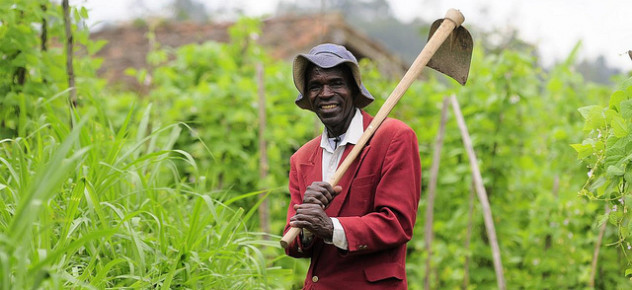Unilever, the world’s third largest consumer goods company, has adopted a research-based methodology to foster business practices that benefit smallholder farmers. In 2012 alone, the company’s global procurement amounted to a total of 35 billion Euros, which represents a lot of purchased raw materials, including agricultural products.
Usually, agribusinesses rely almost exclusively on a small number of large-scale suppliers and ignore the 85% of farms worldwide that are managed by smallholders. But Unilever’s supply and distribution networks involve millions of smallholder farmers, distributors, and retailers around the world. In 2010, the company was already sourcing products from approximately 1.3 million smallholders globally, many of whom are women.
Through its Sustainable Living Plan, launched at the end of that year, Unilever committed to do even better, with the aim of creating “a positive impact in the lives of 5.5 million people by improving livelihoods for smallholder farmers, improving the incomes of small-scale retailers, and increasing the participation of young entrepreneurs in [their] value chain.” On the strength of such initiatives, Unilever was named leader of the Food, Beverage and Tobacco industry group in 2014 by the Dow Jones Sustainability Indices (DJSI) review.
The footprint of a MNC in small farmers | Creating an inclusive supply chain | Sustainable Living | Unilever Global http://t.co/wCJ8HRkTOB
— Mark Lundy (@markincolombia) December 21, 2014
In support of its Sustainable Living Plan, Unilever is using the LINK Methodology – a participatory guide developed by CIAT and partners in 2007 for the purpose of fostering inclusive trade relationships between producer organizations and buyers. The guide includes a series of tools designed to start, implement, and conclude a process of participatory innovation, based on a “design-test-check-act” cycle. In 2015, Unilever will provide training in the LINK Methodology for the 300 to 500 of its 1,700 buyers who deal with smallholder farmers. In addition Unilever, Oxfam, and the Sustainable Food Lab will release a public version of the guide, with the aim of influencing other food companies that engage with smallholders.
#Smallholders are often excluded from #agribusiness channels. Tools to help link smallholders w/ modern #markets: http://t.co/WegjNepL — IIED (@IIED) November 15, 2012
Agribusinesses often perceive purchasing from large numbers of dispersed small-scale producers as risky and costly. Such producers are further excluded from modern market channels by their lack of access to services as well as by high transaction costs and poor infrastructure.
Through its Sustainable Living Plan, Unilever helps farmers improve their agricultural practices and crop yields, develop their skills, and enhance their access to markets. In this way, smallholder farmers increase their business profits and become more competitive. The result is a win-win relationship, in which Unilever also benefits from higher yields, sustainably produced crops, and more secure supplies.
“Inclusive business, getting more people into the supply chain, training them to become active participants, touches the lives of millions and, in the process, also widens Unilever’s own market,” said John Ruggie, a former special representative on business and human rights with the company.

CIAT’s LINK Methodology is designed to foster inclusive trade relationships between producers organizations and buyers. Credit: Neil Palmer / CIAT
In 2010, Unilever signed a memorandum of understanding with Oxfam to learn how to do business with smallholder farmers in ways that are commercially viable and also improve livelihoods. Bringing together the development capacity of Oxfam with Unilever’s commercial expertise, the project identified best practices inside and outside the company that could be scaled up across the procurement operations of Unilever and other firms.
Oxfam and Unilever now want to pursue this effort on a larger scale and persuade other companies to invest in business models involving sustainable supply chains based on smallholder production that are both commercially viable and effective at reducing poverty. In 2015, Unilever and Oxfam, supported by the Ford Foundation, will establish the Enhancing Livelihoods Fund to generate more social impact through more inclusive business practices.